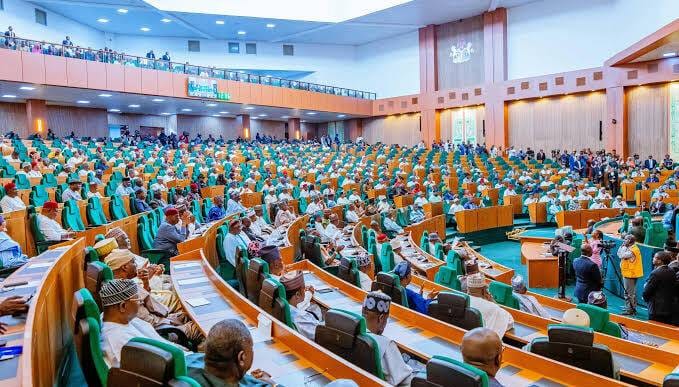The House of Representatives has sounded a major alarm over the rising trend of Nigerian university lecturers leaving the country in large numbers for better opportunities abroad. Lawmakers described the situation as a national emergency capable of crippling the higher education sector if not addressed urgently.
This concern was raised during an oversight visit to the National Universities Commission (NUC) headquarters in Abuja, where members of the House Committee on University Education expressed deep worry about the massive resignation and relocation of lecturers to countries such as the United Kingdom, Canada, and Saudi Arabia.
A Dangerous Trend Threatening Nigeria’s Academic Foundation
The Chairman of the Committee, Hon. Abubakar Hassan Fulata, said the mass exit of experienced academics poses a serious threat to the nation’s development, research capacity, and educational sustainability.
He emphasized that the continuous loss of skilled university lecturers—who are vital for nurturing the next generation of scientists, engineers, doctors, and educators—could weaken the entire foundation of Nigeria’s intellectual system.
“We are losing some of our finest brains to foreign universities because of poor working conditions and unattractive pay. If this trend continues, our universities may soon struggle to maintain their academic standards,” Fulata warned.
Why Nigerian Lecturers Are Leaving in Droves
The House Committee identified several factors responsible for the ongoing brain drain within the university system. Among the most pressing are:
| Major Cause | Description / Impact |
|---|---|
| Poor Remuneration | Lecturers’ salaries have remained stagnant for years despite inflation and economic challenges, making it difficult to sustain a decent living. |
| Inadequate Research Facilities | Many universities lack modern laboratories, libraries, and research grants needed for meaningful academic work. |
| Insecurity and Political Instability | Safety concerns and a lack of long-term stability push many academics to seek better environments abroad. |
| Unstable Academic Calendar | Frequent strikes and funding interruptions have discouraged both students and staff. |
| Better Global Opportunities | Countries such as the UK, Canada, and Saudi Arabia continue to attract Nigerian academics with higher pay and better working conditions. |
Impact on Nigeria’s Higher Education System
The mass departure of lecturers has created a vacuum in many universities across Nigeria. Departments that once had seasoned professors are now struggling to meet NUC accreditation standards, as junior or inexperienced lecturers are left to handle demanding academic responsibilities.
Some institutions have resorted to hiring visiting or adjunct lecturers, which affects the continuity of research and mentorship for students. According to reports presented to the House Committee, several public universities are already facing serious staff shortages in core disciplines such as engineering, medicine, and sciences.
This situation, lawmakers warned, could lead to a decline in Nigeria’s global ranking in education and further limit the country’s ability to compete in innovation and technological development.
Lawmakers Call for Urgent Government Action
In response to the growing concern, the Committee pledged to collaborate with the NUC and the Federal Ministry of Education to implement new measures aimed at retaining skilled lecturers and restoring confidence in the Nigerian university system.
Some of the proposed interventions include:
- Reviewing lecturers’ salary structures to make them competitive with global standards.
- Increasing funding for research, innovation, and infrastructure development in universities.
- Introducing incentives for outstanding lecturers and researchers who choose to remain in Nigeria.
- Encouraging public-private partnerships to support tertiary education and reduce dependence on government allocations.
What the National Universities Commission (NUC) Said
Officials of the NUC, while responding to lawmakers’ concerns, admitted that the exodus of lecturers has become a serious challenge for the Commission. They noted that despite efforts to expand access to higher education through new universities, the availability of qualified teaching staff is becoming critically low.
The NUC revealed that the problem is not only limited to federal universities but also affects state and private institutions, where low funding and delayed salaries have made retention increasingly difficult.
“If urgent steps are not taken, the future of Nigeria’s university education system could be in jeopardy,” a top NUC official said during the session.
Students and the Future of Learning in Nigeria
For students, the ongoing exodus of lecturers could mean fewer learning opportunities, limited supervision for research projects, and delayed academic calendars. Departments that lose key staff may face challenges in accreditation, leading to disruption in academic progress.
Experts warn that if the trend continues, Nigeria could experience a long-term educational setback, as younger academics may lack adequate mentorship and professional guidance. This could also discourage brilliant graduates from pursuing academic careers in the country.
The Bigger Picture: Nigeria’s Brain Drain Crisis
The mass departure of university lecturers is part of a broader national issue known as brain drain — the migration of skilled professionals in search of better living conditions and job satisfaction. The education sector is now joining the long list of professions, including healthcare and technology, losing top talents to foreign countries.
This ongoing brain drain, if not reversed, could slow down Nigeria’s progress toward achieving sustainable development goals in education, science, and technology.



